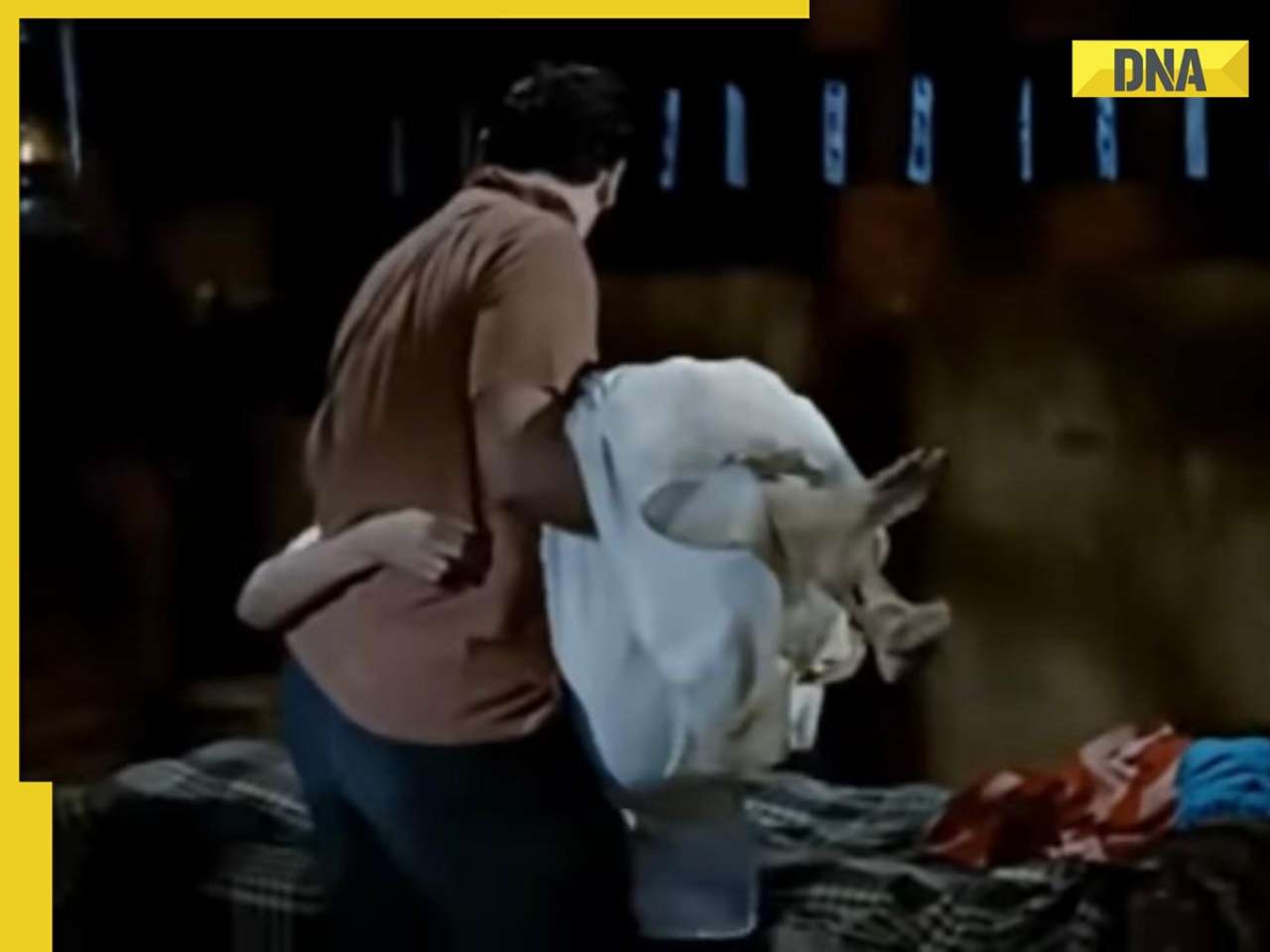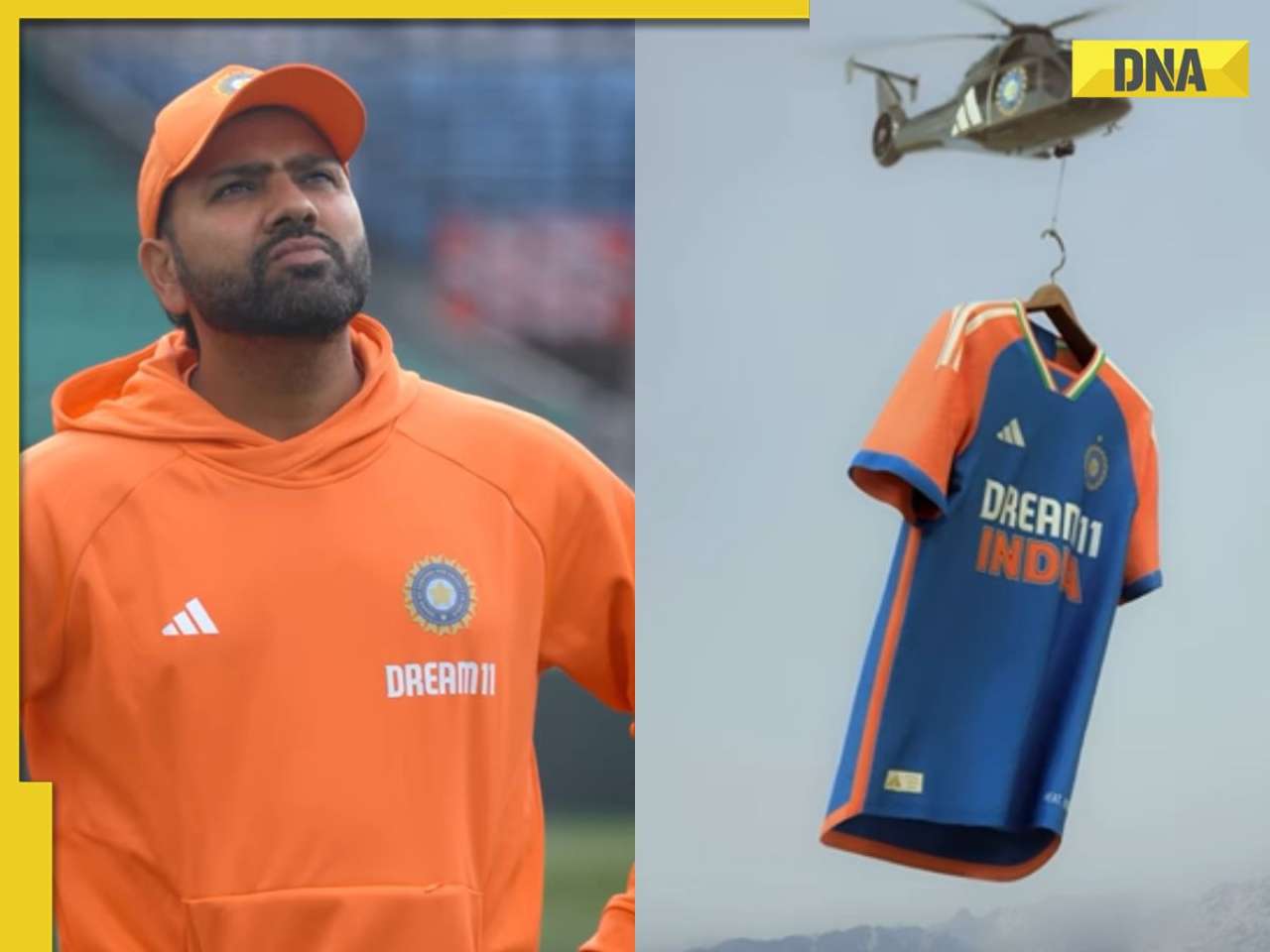Eyewitness claims staff didn’t forewarn victim; hospital says kin insisted on o2 cylinder
Eyewitnesses to the freak accident at Nair Hospital on Saturday evening blame the carelessness of the hospital’s on duty staff for the mishap that claimed 30-year-old Rajesh Maru’s life. “It is mere carelessness of the on-duty doctors and technicians of the MRI section as they did not caution Maru about entering the MRI room with the oxygen cylinder,” said Nayan Jitiya, Maru’s relative.
Maru was accompanying his elder sister’s ailing mother-in-law, Laxmi Solanki, who was admitted to the Intensive Care Unit (ICU) of the hospital on January 26 for breathlessness. She was on oxygen support and was advised to get an MRI done. On Saturday, around 7.30 pm when Solanki was being taken for the MRI on a stretcher, Maru was holding an oxygen cylinder in his hand. They were accompanied by two other relatives. Maru’s body was later taken to JJ Hospital for a post-mortem.
Priyanka Solanki, who was with Maru at the time of the incident said, “We were told by the aaya (helper) to remove our ornaments. The ward boy said that the MRI machine is switched off so Maru could enter first to keep the oxygen cylinder and then help them take the patient into the room. The door was only half-way open when he was instantly swept into the MRI machine due to its magnetic force. Within seconds he was stuck inside the machine and oxygen from the cylinder began leaking.”
Solanki added, “The doctors immediately took him to the casualty room but he was declared dead within 10 minutes of examination.”
Following the incident, the family approached the Agripada police station and lodged an FIR against the hospital. “Around 8 to 8.15 pm the relatives came in to file an FIR. We have arrested three accused — the on duty resident doctor, Dr Saurabh Langekar, a ward boy and the helper. Another doctor from the radiology department, Dr Siddhart Shah was present in the MRI room, however, no case has been registered against him by the family,” said Savalaram Agawane, Senior Police Inspector, Agripada police station.
Agawane added, “We will carry out a detailed investigation into why the authority on duty allowed the victim to enter the MRI room with an oxygen cylinder. Even if the relatives were unaware or stubborn, it is the hospital’s responsibility to stop them.”
MRI FACT CHECK
MRI
Magnetic Resonance Imaging
- a medical imaging technique used to form detailed pictures of the body’s organs, tissues and physiological processes
- widely used for medical diagnosis, staging of diseases and follow-ups
1
MRI machine per hospital
Rs 5 crore+
Cost per machine
30
MRIs per day at Nair Hospital
MRI room
a separate room inside the radiology section of a hospital
Why?
- The machine uses powerful magnetic fields and radio waves to generate images
- It attracts iron-containing objects and may cause them to move suddenly and with great force
- It will also pull on any iron-containing object in the body
- This poses a possible risk to the patient or anyone in the object’s ‘flight path’
- The machine is usually switched on throughout the day as MRI appointments are slotted one after the other
- Even on standby mode, radiation produced by the machine is present in the room
MANDATORY PRECAUTIONS
- Great care is taken to be certain that iron-containing objects are not brought into the area
- Every MRI facility has a comprehensive screening procedure and protocol that must be carefully followed
- As a patient, it is vital to remove all metallic belongings before an MRI exam. These include hearing aids, watches, jewellery, cell phones, and items of clothing that have metallic threads or fasteners. Additionally, makeup, nail polish, or other cosmetics that may contain metallic particles should also be removed if applied to the area of the body undergoing the MRI examination
- It is very important to inform the MRI technologist about any implant or other internal objects like pacemakers or non-removable metals inside the body that one may have
- Stretchers on which patients are taken to the room are radiation compatible
- In addition, a metallic implant or other objects may cause signal loss or distort the MR images
IN THE BLINK OF AN EYE
- 65-year-old Laxmi Solanki, a patient at the hospital, is taken to the MRI room on a stretcher accompanied by 30-year-old Rajesh Maru who is carrying an oxygen cylinder
- The ward boy directs Maru to enter the MRI room first to place the cylinder as the machine is switched off
- Within seconds, the MRI machine swallows Maru entirely. While he is stuck in the machine, the oxygen cylinder begins leaking
- Eyewitnesses and hospital staff present at the site attempt to pull Maru out of the machine. His hand is stuck and there is blood all over
![submenu-img]() Meet woman who ran away from home at 15, slept on railway station, built Rs 104 crore company, she is...
Meet woman who ran away from home at 15, slept on railway station, built Rs 104 crore company, she is...![submenu-img]() Salman Khan house firing case: Fifth suspect arrested from Rajasthan, has ties to...
Salman Khan house firing case: Fifth suspect arrested from Rajasthan, has ties to... ![submenu-img]() Mukesh Ambani’s Reliance firm to enter Rs 963170000000 auction, aims to buy…
Mukesh Ambani’s Reliance firm to enter Rs 963170000000 auction, aims to buy…![submenu-img]() Meet actor who washed dishes in hotel, debuted with Rs 1600-crore hit, beat Shah Rukh, Salman, Aamir at box office at 18
Meet actor who washed dishes in hotel, debuted with Rs 1600-crore hit, beat Shah Rukh, Salman, Aamir at box office at 18![submenu-img]() Isha Ambani's Met Gala 2024 saree gown was created in over 10,000 hours, see pics
Isha Ambani's Met Gala 2024 saree gown was created in over 10,000 hours, see pics![submenu-img]() DNA Verified: Is CAA an anti-Muslim law? Centre terms news report as 'misleading'
DNA Verified: Is CAA an anti-Muslim law? Centre terms news report as 'misleading'![submenu-img]() DNA Verified: Lok Sabha Elections 2024 to be held on April 19? Know truth behind viral message
DNA Verified: Lok Sabha Elections 2024 to be held on April 19? Know truth behind viral message![submenu-img]() DNA Verified: Modi govt giving students free laptops under 'One Student One Laptop' scheme? Know truth here
DNA Verified: Modi govt giving students free laptops under 'One Student One Laptop' scheme? Know truth here![submenu-img]() DNA Verified: Shah Rukh Khan denies reports of his role in release of India's naval officers from Qatar
DNA Verified: Shah Rukh Khan denies reports of his role in release of India's naval officers from Qatar![submenu-img]() DNA Verified: Is govt providing Rs 1.6 lakh benefit to girls under PM Ladli Laxmi Yojana? Know truth
DNA Verified: Is govt providing Rs 1.6 lakh benefit to girls under PM Ladli Laxmi Yojana? Know truth![submenu-img]() Alia Bhatt wears elegant saree made by 163 people over 1965 hours to Met Gala 2024, fans call her ‘princess Jasmine’
Alia Bhatt wears elegant saree made by 163 people over 1965 hours to Met Gala 2024, fans call her ‘princess Jasmine’![submenu-img]() Jr NTR-Lakshmi Pranathi's 13th wedding anniversary: Here's how strangers became soulmates
Jr NTR-Lakshmi Pranathi's 13th wedding anniversary: Here's how strangers became soulmates![submenu-img]() Streaming This Week: Heeramandi, Shaitaan, Manjummel Boys, latest OTT releases to binge-watch
Streaming This Week: Heeramandi, Shaitaan, Manjummel Boys, latest OTT releases to binge-watch![submenu-img]() Remember Ayesha Kapur? Michelle from Black, here's how actress, nutrition coach, entrepreneur looks after 19 years
Remember Ayesha Kapur? Michelle from Black, here's how actress, nutrition coach, entrepreneur looks after 19 years![submenu-img]() Remember Heyy Babyy's cute 'Angel' Juanna Sanghvi? 20 year-old looks unrecognisable now, fans say 'her comeback will...'
Remember Heyy Babyy's cute 'Angel' Juanna Sanghvi? 20 year-old looks unrecognisable now, fans say 'her comeback will...'![submenu-img]() DNA Explainer: Why Harvey Weinstein's rape conviction was overturned, will beleaguered Hollywood mogul get out of jail?
DNA Explainer: Why Harvey Weinstein's rape conviction was overturned, will beleaguered Hollywood mogul get out of jail?![submenu-img]() What is inheritance tax?
What is inheritance tax?![submenu-img]() DNA Explainer: What is cloud seeding which is blamed for wreaking havoc in Dubai?
DNA Explainer: What is cloud seeding which is blamed for wreaking havoc in Dubai?![submenu-img]() DNA Explainer: What is Israel's Arrow-3 defence system used to intercept Iran's missile attack?
DNA Explainer: What is Israel's Arrow-3 defence system used to intercept Iran's missile attack?![submenu-img]() DNA Explainer: How Iranian projectiles failed to breach iron-clad Israeli air defence
DNA Explainer: How Iranian projectiles failed to breach iron-clad Israeli air defence![submenu-img]() Salman Khan house firing case: Fifth suspect arrested from Rajasthan, has ties to...
Salman Khan house firing case: Fifth suspect arrested from Rajasthan, has ties to... ![submenu-img]() Meet actor who washed dishes in hotel, debuted with Rs 1600-crore hit, beat Shah Rukh, Salman, Aamir at box office at 18
Meet actor who washed dishes in hotel, debuted with Rs 1600-crore hit, beat Shah Rukh, Salman, Aamir at box office at 18![submenu-img]() This superstar was active on internet even before it came to India, called Bollywood's computer guru, not Amitabh, SRK
This superstar was active on internet even before it came to India, called Bollywood's computer guru, not Amitabh, SRK![submenu-img]() This singer left Air Force, sang at churches, became superstar; later his father killed him after...
This singer left Air Force, sang at churches, became superstar; later his father killed him after...![submenu-img]() Most popular Indian song ever on Spotify has 50 crore streams; it's not Besharam Rang, Pehle Bhi Main, Oo Antava, Naina
Most popular Indian song ever on Spotify has 50 crore streams; it's not Besharam Rang, Pehle Bhi Main, Oo Antava, Naina![submenu-img]() IPL 2024: Suryakumar Yadav's century power MI to 7-wicket win over SRH
IPL 2024: Suryakumar Yadav's century power MI to 7-wicket win over SRH![submenu-img]() DC vs RR, IPL 2024: Predicted playing XI, live streaming details, weather and pitch report
DC vs RR, IPL 2024: Predicted playing XI, live streaming details, weather and pitch report![submenu-img]() Watch: Team India’s new jersey for T20 World Cup 2024 unveiled
Watch: Team India’s new jersey for T20 World Cup 2024 unveiled![submenu-img]() DC vs RR IPL 2024 Dream11 prediction: Fantasy cricket tips for Delhi Capitals vs Rajasthan Royals
DC vs RR IPL 2024 Dream11 prediction: Fantasy cricket tips for Delhi Capitals vs Rajasthan Royals![submenu-img]() IPL 2024: Kolkata Knight Riders take top spot after 98 runs win over Lucknow Super Giants
IPL 2024: Kolkata Knight Riders take top spot after 98 runs win over Lucknow Super Giants![submenu-img]() Isha Ambani's Met Gala 2024 saree gown was created in over 10,000 hours, see pics
Isha Ambani's Met Gala 2024 saree gown was created in over 10,000 hours, see pics![submenu-img]() Indian-origin man says Apple CEO Tim Cook pushed him...
Indian-origin man says Apple CEO Tim Cook pushed him...![submenu-img]() Meet man whose salary was only Rs 83 but his net worth grew by Rs 7010577000000 in 2023, he is Mukesh Ambani's...
Meet man whose salary was only Rs 83 but his net worth grew by Rs 7010577000000 in 2023, he is Mukesh Ambani's...![submenu-img]() Job applicant offers to pay Rs 40000 to Bengaluru startup founder, here's what happened next
Job applicant offers to pay Rs 40000 to Bengaluru startup founder, here's what happened next![submenu-img]() Viral video: Family fearlessly conducts puja with live black cobra, internet reacts
Viral video: Family fearlessly conducts puja with live black cobra, internet reacts






































)








)
)
)
)
)
)